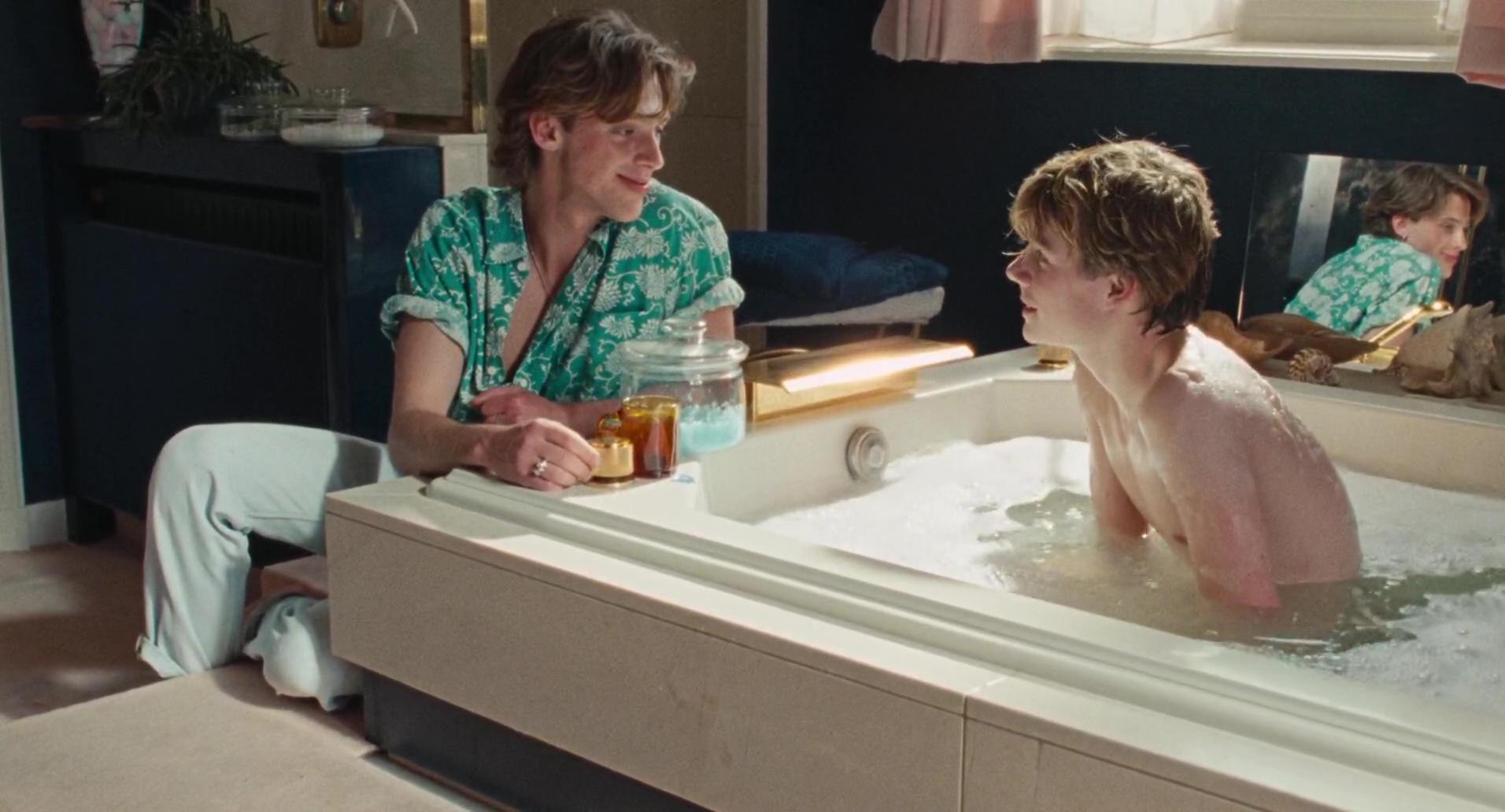Summer of 85: A Tender Tale of First Love and Loss
In 2020, French director François Ozon released a film that beautifully encapsulates the bittersweet intensity of first love and the sharp pain of loss: Summer of 85 (Été 85). Based on Aidan Chambers’ 1982 novel Dance on My Grave, Ozon’s adaptation is a sensual and tragic coming-of-age story set on the sun-drenched beaches of Normandy in the mid-1980s. Through its vibrant cinematography, moving performances, and evocative soundtrack, Summer of 85 captures a fleeting romance that leaves an indelible mark on both the characters and the audience.
This post explores the film’s plot, themes, stylistic choices, and the haunting beauty that lingers long after the credits roll.
Plot Summary
Summer of 85 follows the story of Alexis Robin (Félix Lefebvre), a sixteen-year-old boy who loves reading, daydreaming, and contemplating life and death. The film begins with an ominous voiceover: Alexis has been arrested, and he tells us that someone is dead.
The story then flashes back to the start of that fateful summer. Alex is a quiet, sensitive teenager spending his days by the sea. One afternoon, he takes a boat out for a sail, but it capsizes during a sudden storm. Just as he’s about to drown, he’s rescued by David Gorman (Benjamin Voisin), an older, charismatic boy of eighteen who works in a local boat shop.
David and Alex are immediately drawn to each other. David, charming and confident, takes Alex home, where Alex meets David’s mother (Valeria Bruni Tedeschi), a vivacious and flirtatious woman who seems to delight in her son’s youthful adventures.
As summer unfolds, David and Alex fall deeply in love. They race through the streets on David’s motorcycle, dance to the music of Rod Stewart, and spend passionate nights together. David introduces Alex to the idea of a “death pact,” promising that whoever dies first will dance on the other’s grave. For Alex, it’s a romantic but unsettling idea, one that foreshadows the darkness to come.
However, their idyllic romance soon begins to fray. David, with his impulsive and unpredictable nature, grows distant. Alex becomes increasingly insecure and jealous, especially when David flirts with a young woman named Kate (Philippine Velge), a British au pair staying nearby. The final crack comes when Alex discovers David and Kate together in a moment of betrayal.
Devastated and heartbroken, Alex leaves David. Not long after, David is killed in a motorcycle accident. True to their death pact, Alex breaks into the cemetery and dances on David’s grave—a surreal, desperate act that lands him in jail.
The film ends with Alex reflecting on the summer that changed everything. Despite the heartbreak and the death that overshadowed their brief romance, Alex is forever changed by the love he and David shared.
Themes: Love, Loss, and Memory
At its core, Summer of 85 is a tender examination of first love and the way it shapes us forever. Alex’s romance with David is his first intense emotional experience, filled with discovery and vulnerability. Ozon captures the thrill of young love with authenticity: the stolen kisses, the secret smiles, the feeling that nothing else matters except the person beside you.
But love in Summer of 85 is also shadowed by death. From the very beginning, Alex tells us that he’s narrating the story from a place of loss. The death pact between the boys is both romantic and morbid—a symbol of their deep connection but also a foreshadowing of how quickly things can unravel. Ozon doesn’t shy away from the pain of losing someone you love, especially when you’re young and haven’t yet learned how to handle heartbreak.
Memory, too, is a powerful force in the film. Alex’s narration is framed as a story he’s writing to process what happened. Memory becomes a way of making sense of tragedy, of finding meaning in something that feels senseless. In this way, Summer of 85 becomes not just a love story, but also a meditation on how we remember the people we lose and how those memories can both haunt and heal us.
Characters and Performances
The film’s emotional impact relies heavily on the performances of its two leads. Félix Lefebvre is extraordinary as Alex, capturing both the tenderness of first love and the rawness of grief. He plays Alex with wide-eyed innocence at the start, transforming into someone older and wiser by the end—a boy who has been marked by both love and loss.
Benjamin Voisin is magnetic as David, exuding charm and sensuality while also hinting at the restlessness that ultimately drives him to self-destruction. David is the quintessential object of a teenage crush: handsome, rebellious, and free-spirited. Voisin makes him captivating but also vulnerable—a boy trying to figure out who he is, even as he pulls Alex into his orbit.
Valeria Bruni Tedeschi brings a lively energy to her role as David’s mother. Her warmth and eccentricity create a contrast to the film’s darker moments, reminding us that life is a mix of light and shadow.
Style and Atmosphere
Ozon’s direction is lush and evocative. The film is bathed in the warm, sunlit colors of a seaside summer: golden beaches, turquoise water, and endless blue skies. The cinematography by Hichame Alaouie captures the carefree beauty of youth, the tactile intimacy of skin on skin, and the lingering melancholy of a summer that can’t last forever.
The film’s soundtrack, featuring Rod Stewart’s “Sailing” and The Cure’s “In Between Days,” adds to its nostalgic feel. The music is both a celebration of the boys’ romance and a reminder of the era’s fleeting joys.
One of the film’s most striking scenes is Alex’s graveyard dance. Shot in slow motion, it’s a moment of both desperation and liberation—a boy honoring a promise, clinging to memory even as he’s forced to let go. It’s Ozon at his most poetic: a scene that’s sad and beautiful all at once.
A Coming-of-Age Story with a Twist
Summer of 85 can be seen as a coming-of-age film, but it’s not the typical one where a young person simply grows up and finds themselves. Here, growing up is inextricably linked with grief. Alex learns about love and intimacy, but he also learns how quickly it can be taken away.
In the end, the film suggests that first love—even if it ends in tragedy—is transformative. Alex will always carry David with him, in both memory and spirit. The pain of loss doesn’t erase the beauty of what they shared.
Comparisons and Inspirations
It’s impossible to watch Summer of 85 without thinking of other films that explore the intersection of youth, love, and loss. Luca Guadagnino’s Call Me by Your Name (2017) comes to mind, with its sensual depiction of a summer romance in Italy. Like Elio in that film, Alex must navigate the confusing intensity of first love and the devastation of its end.
Ozon’s film also echoes the work of André Téchiné, whose films often explore the emotional landscapes of adolescence. And of course, the story’s literary origin in Chambers’ Dance on My Grave gives it a timeless quality—this is a tale that resonates no matter the era.
Personal Reflections
Watching Summer of 85 is like being pulled into a memory—someone else’s memory, but one that feels deeply familiar. It’s a story of being young and in love for the first time, of feeling like the world begins and ends with the person you’re in love with. And it’s a story of realizing, often too soon, that nothing lasts forever.
For me, the most powerful aspect of the film is its honesty. Ozon doesn’t romanticize tragedy, but he also doesn’t deny the beauty of it. David’s death is a wound, but the summer he and Alex shared is also a treasure—a brief, shining moment that will always be a part of who Alex is.
It’s a reminder that even the shortest love can change us profoundly.







